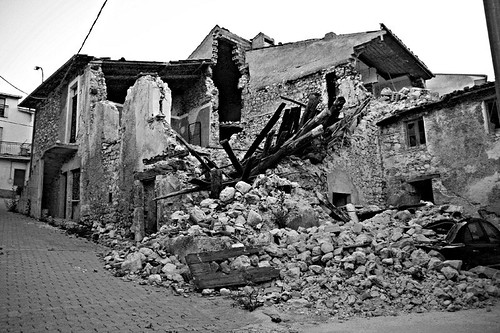 Even the best and brightest can get things wrong, which is why science depends on corroboration to get things right. On Respectful Insolence, Orac investigates the conviction of six Italian seismologists for failing to warn people about an earthquake that killed 300. Orac writes “‘earthquake swarms’ are not uncommon in the L’Aquila region” and “a medium-sized shock in a swarm forecasts a major event within several days only 2% of the time.” But for accurately assessing the risk of a major event, the government employees have been sentenced to six years in prison for manslaughter. On Starts With a Bang, Ethan Siegel outlines the requirements for a truly scientific prediction, adding "some natural phenomena are simply presently beyond the reach of science." Meanwhile, on The Weizmann Wave, new research contradicts the hypothesis that certain lake bacteria can substitute arsenic for phosphate in their DNA. Rather than exploit the local abundance of arsenic, these bacteria “have actually evolved to reject it ever more efficiently.”
Even the best and brightest can get things wrong, which is why science depends on corroboration to get things right. On Respectful Insolence, Orac investigates the conviction of six Italian seismologists for failing to warn people about an earthquake that killed 300. Orac writes “‘earthquake swarms’ are not uncommon in the L’Aquila region” and “a medium-sized shock in a swarm forecasts a major event within several days only 2% of the time.” But for accurately assessing the risk of a major event, the government employees have been sentenced to six years in prison for manslaughter. On Starts With a Bang, Ethan Siegel outlines the requirements for a truly scientific prediction, adding "some natural phenomena are simply presently beyond the reach of science." Meanwhile, on The Weizmann Wave, new research contradicts the hypothesis that certain lake bacteria can substitute arsenic for phosphate in their DNA. Rather than exploit the local abundance of arsenic, these bacteria “have actually evolved to reject it ever more efficiently.”
20/20 Hindsight
tags: golden eagle, Aquila chrysaetos,
tags: Eurasian Tawny-Eagle, Asian Tawny-Eagle,
In the wake of Monday's earthquake in the L'Aquila region of Italy that killed over 200 people, news emerged that one Italian scientist had predicted the earthquake less than two weeks earlier.
“.....the essence of this human-driven tragedy: to know that a given course of action will lead to disaster but to pursue it nevertheless.”
—Cassandra
We heard about this here in the states and were amazed.
Earthquakes cannot be predicted!
To hold anyone accountable in such a situation is bordering on just-plain-crazy. One would think with Italy's record of scientific achievement (read: Galileo) they would recognize the silliness of this incarceration.
But scientists claim that they've found out fairly new techniques in earthquakes prediction. Specially when it is related on short term predictions.
'Respectful Insolence'?!?
.
Was this oxymoron intended?
.
Perhaps the author was reaching for 'Respectful Dissent'?
.
'Respectful Dissent' certainly makes more sense.